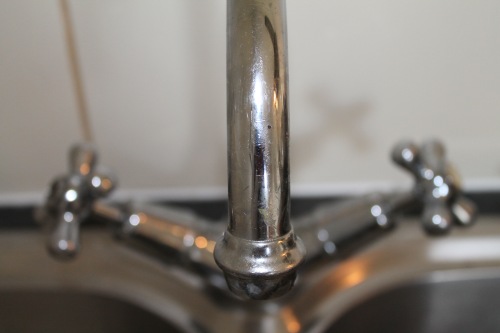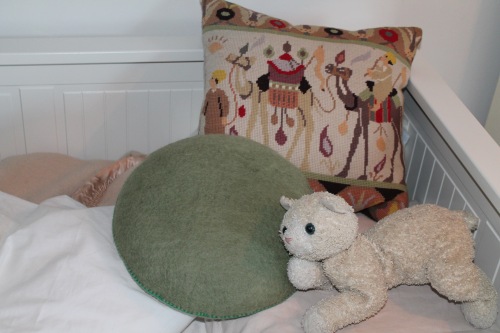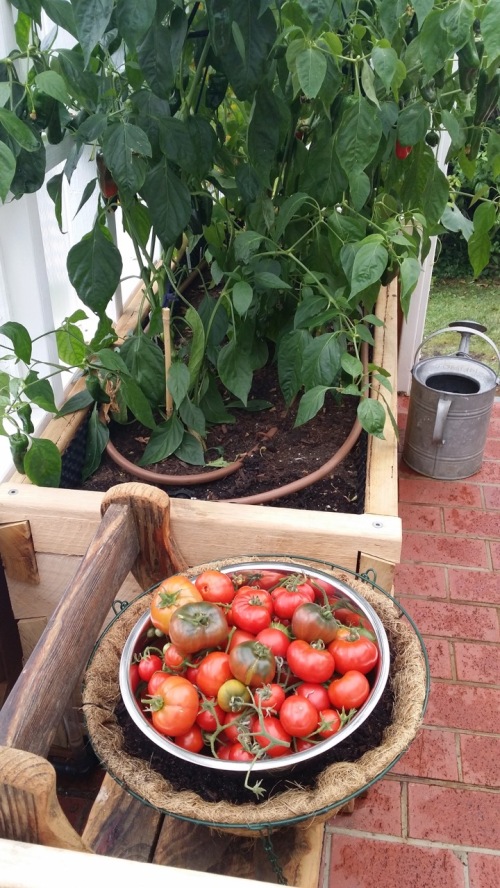‘You’d like to talk to me about what?’
I used to think that when I approached a woman to ask if she was willing to talk with me about her domestic life, and she paused, that it was my imagination. Knowing it was an unusual request, I’d disguise the pause with chat, aimed at putting us both at ease. Perhaps, I thought, it was my own nervousness that had caused the hesitation. But after a while I realised that it wasn’t my imagination. Whenever I ask a woman whether she might talk to me about domesticity, she really does think twice before responding.
Why, I wonder, is this? Could it be that we don’t quite trust ourselves to talk frankly about an area of our lives that we rarely open up about? Is it that the stories we tell ourselves, about how we imagine other women manage their home lives, instinctively lead us to keep quiet about our own? Other women, we tell ourselves, with just a hint of self-reprimand, are on top of housekeeping. They are reconciled to the daily demands that their homes make on them. We, on the other hand, are only occasionally on top of our home lives. And this is why, just as we rush round cleaning up the house when the doorbell goes, we don’t trust ourselves to talk freely about domesticity.
‘If you can’t say anything nice, don’t say anything at all’, my mother used to say. Is this why we veil our domestic lives from anyone but close friends? Do we fear the protest that might pour unbridled from our mouths? Or do we fear being judged by a standard of domestic excellence that we know we’ll never achieve? There is nothing wrong with privacy, you may say. And I’ll agree with you. However the problem with shielding our domestic lives, to the degree most of us do, is that we end up veiling the domestic triumphs that mean so much to us personally, yet don’t stack up in public.
Besides, our domestic life may be a largely private affair, but it’s no small affair. How could something that takes up roughly a quarter of our waking hours be slight in its impact? This may explain why, whenever I do sit down to chat to someone about their domestic life, the conversation takes on a life of its own. Like a babbling brook after rain whoever I am speaking with has more to say, even after our hour is up. The fear that she might have nothing of interest to say, that her domestic life is without significance to others, flips into reverse. And the relief is palpable.
Most of us feel relatively secure about our work life. We may worry about the trajectory of our career, fantasise about switching to another line of work, or wonder about launching our own business. But we don’t have a problem valuing what we do when we’re working. Our work life gives us back to ourselves. It integrates us, reflecting back a coherent sense of self. Ironically it’s at home that many of us feel less secure. It’s almost as if our hold over our home lives, being less public, is more fragile than our hold over our work lives. We may be under more pressure at work, but it’s a pressure that we’ve learned to deal with, even enjoy. In contrast it’s at home that we wonder whether we’re meeting our expectations. It’s at home that we fear judgment and are prey to guilt. When a friend comes to the front door unannounced, we immediately fall into apologising for our messy house in a way that we’d never apologise for ourselves at work.
This, for me, has been a surprising finding arising out of the twenty or so conversations that I’ve had about domesticity so far. Why, I can’t help wondering, have so many of us lost confidence in the way we run our homes, and in the things we care about domestically? Why can’t we feel pride in our small triumphs at home, rather than being haunted by an ideal that hardly any of us achieve?
In theory we know that the best is the enemy of the good. And yet when it comes to housekeeping it’s as if we can’t help hankering for the best. There are those of us who reduce the demands on our home lives so drastically that the act of going home neither threatens nor inspires. And the result? We defer inviting friends round for a midweek dinner, telling ourselves we are too busy to cook for others. We put off going through ‘that’ cupboard, all the while going to great lengths to avoid opening it. We let seedlings wilt in their pots, as if something as small as a seed might be capable of incriminating us. Or we turn a small renovation that might make the world of difference to us personally into an obstacle that we understandably duck. And we avoid all these things not because they are beyond us – what is so hard about planting out seedlings? – but because of the pressure we fear that they’ll put us under.
What I have come to think, after the conversations I’ve had so far, is that the reason we think twice before talking freely about domesticity is that we take our home lives very personally. If only I were better organised, you will tell me with a sigh. If only I had a cleaner, another will say. If only I didn’t have a cleaner, still another will say, eyes big. If only I wasn’t renting and could decorate in my own style, my sister will say before she rings off. If only, I might reply, suppressing my own sigh, my husband and teenagers were more willing.
The assumption we all make is that if our particular problems were solved our domestic lives would feel the way we would like them to feel – casual, chic and smooth. Rather than the organised chaos that we so often experience them as. Unlike the beauty myth, which most women have toppled to, the domestic myth lives on in the nether regions of our minds, in a place where sympathy and understanding rarely reach.
And yet once we do pluck up courage to talk about our domestic lives, the domestic myth soon collapses. There is no Old Testament figure with beard and pointed finger who disdains our attempts to keep our domestic lives on track. The home lives that had previously felt so personal, become much less so. In particular, our fear of judgment loses its sting as soon as we accept that we are simply doing our best, and doing it every day. Instead lightness, even laughter, accompany our efforts to talk about, look after, and even love our homes.
It’s not just me. It’s not just you. No-one out there scrubs their grouting, unclutters their cupboards, weeds their garden, composts waste, changes fuses and perfects shortcrust pastry on a regular basis. Everyone has better things to do than to ensure their saucepans never boil dry.
Besides, there is a flip side. The flip side is that most of us feel quietly proud of aspects of our home lives that give expression to our desire for higher things. I might sew a garment in one weekend. You might fuss over dinner and be pleased when your efforts are appreciated. My sister might iron her pillow cases, scent them with lavender, and give thanks to a life in which she can do this. And it’s small things like these, so often the important things, that we might celebrate.




